Venezuela timeline: Oil prices and crises
Oil prices collapse from $35 to $10 a barrel
Riots take over the country
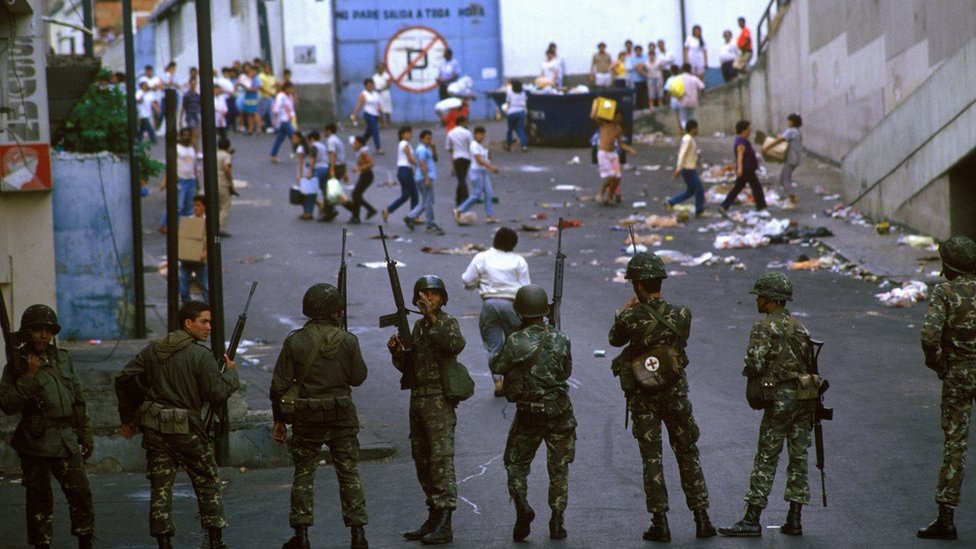
President Carlos Andrés Pérez implements a number of austerity measures. The prices of petrol, food and public transport rise sharply, sparking riots that become known as Caracazo. Security forces crack down on demonstrators, killing between 300 and 3,000.
Two failed coup attempts
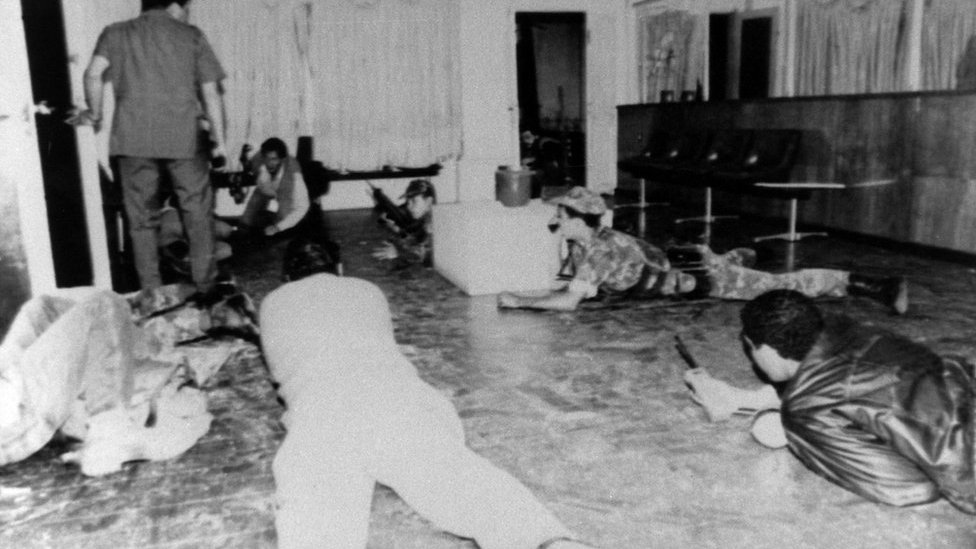
Hugo Rafael Chávez Frias, a young army lieutenant colonel, leads an attempt to overthrow the president. The revolt is unsuccessful, Chávez gives himself up and is sent to a military jail. Months later, his allies try to seize power for a second time, but fail again. The revolts result in some 120 deaths.
Pérez impeached and Chávez pardoned
Embroiled in corruption accusations, President Pérez was impeached in 1993 and sentenced to jail. Not long after, Chávez and other rebels are pardoned. In 1997, Chávez and his supporters launch the Movement of the Fifth Republic.
Oil prices fall from around $19 to $12 a barrel due to the Asian financial crisis
Chávez elected
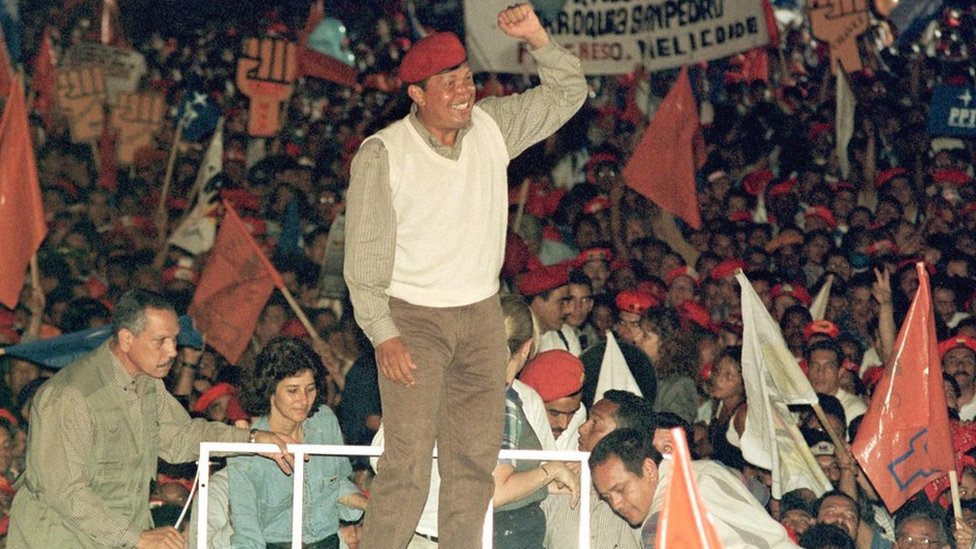
With support not just from the poorest but also from a middle class which has seen its living standards sink, Chávez is elected promising "revolutionary" social policies.
Presidential terms extended
A new constitution is approved in a referendum, extending the presidential term from five to six years and allowing leaders to run for immediate re-election. It comes with one condition: a presidential election should be held in 2000, which Chávez wins.
Caracas protests turn violent
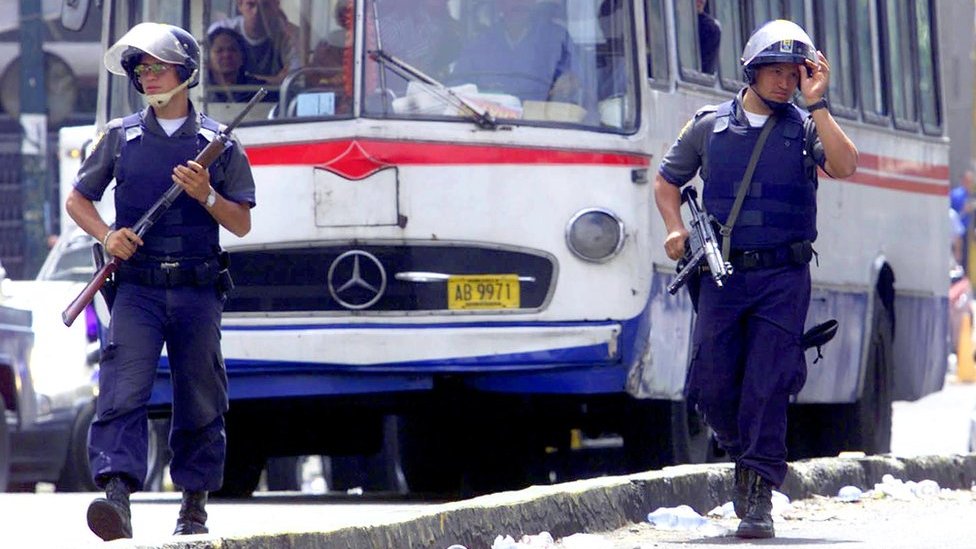
The state-owned oil company, PDVSA, struggles after top technocrats were replaced with inexperienced Chávez loyalists, and business and union leaders call a general strike. Protests in Caracas turn violent with at least a dozen dead. Top military officers detain Chávez and businessman Pedro Carmona declares himself president. Rescued by lower ranks of the military, Chávez returns to the presidency just 48 hours after being ousted.
Chávez clings to power amid unrest
Thousands of oil workers who had joined the strike are fired. Chávez pegs the bolívar to the dollar and introduces foreign currency and price controls. Opponents organise a number of protests and petitions for a referendum on the president's rule but Chávez remains in power.
Oil prices rise from $30 to above $60 a barrel
Bolivarian revolution "success"
Chávez starts pumping the money from oil revenues to fund social welfare and introduces controversial policies including nationalising key sectors of the economy. His programmes reduce poverty and help get him re-elected. He says his "Bolivarian revolution" has triumphed.
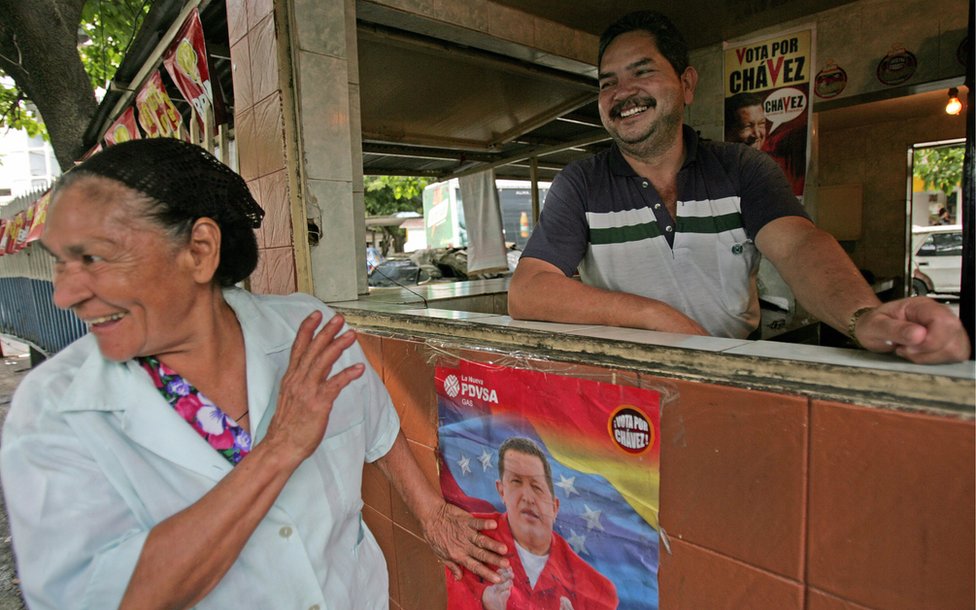
After reaching a record high above $140 in 2008, oil prices plunge to around $32
High inflation bites
While poverty continues to fall as a result of the government’s programmes, Venezuelans suffer from high inflation. Electricity blackouts become frequent and crime rises across the country.
March towards democratic socialism
Chávez is re-elected saying he has fully recovered from an unspecified cancer he announced in 2011. He says Venezuela will continue its "march towards democratic socialism". But critics say the cult around his image is taking the country towards dictatorship.
Chávez dies
After months without being seen in public, Chávez dies at 58 in Caracas. Thousands take to the streets to pay tribute while his hand-picked successor, Vice-President Nicolás Maduro, vows to keep socialist legacy.
Maduro is elected promising a "revolution within the revolution"
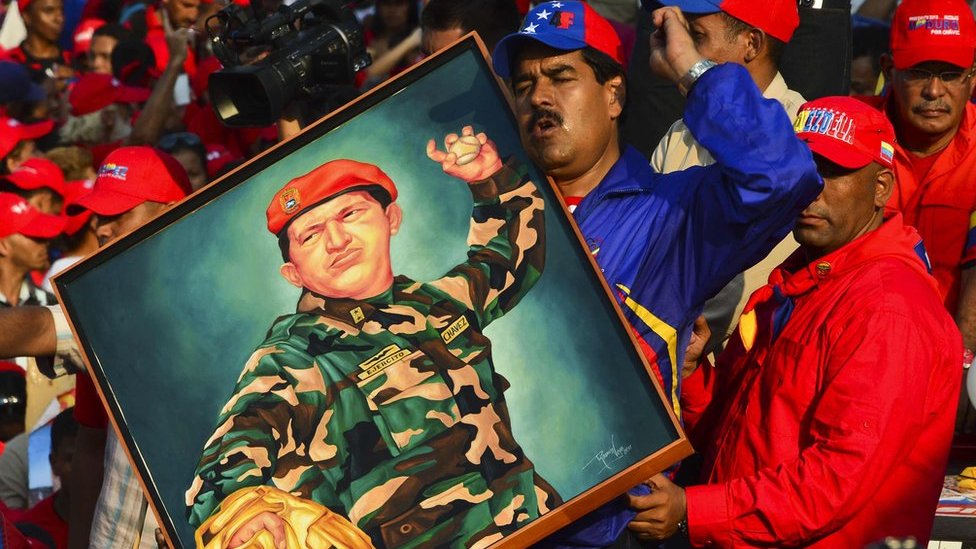
Oil prices plunge below $50 a barrel
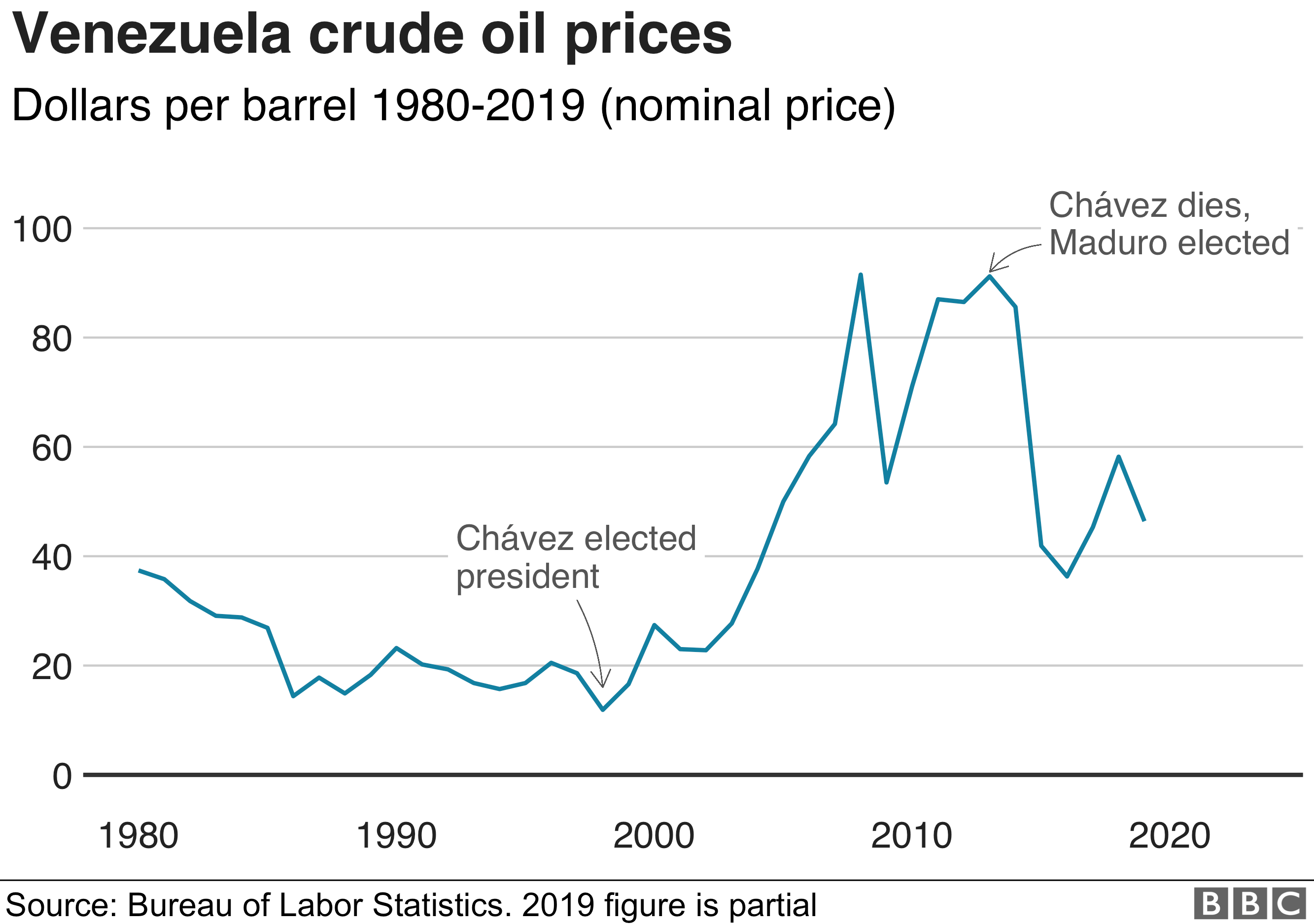
Millions flee
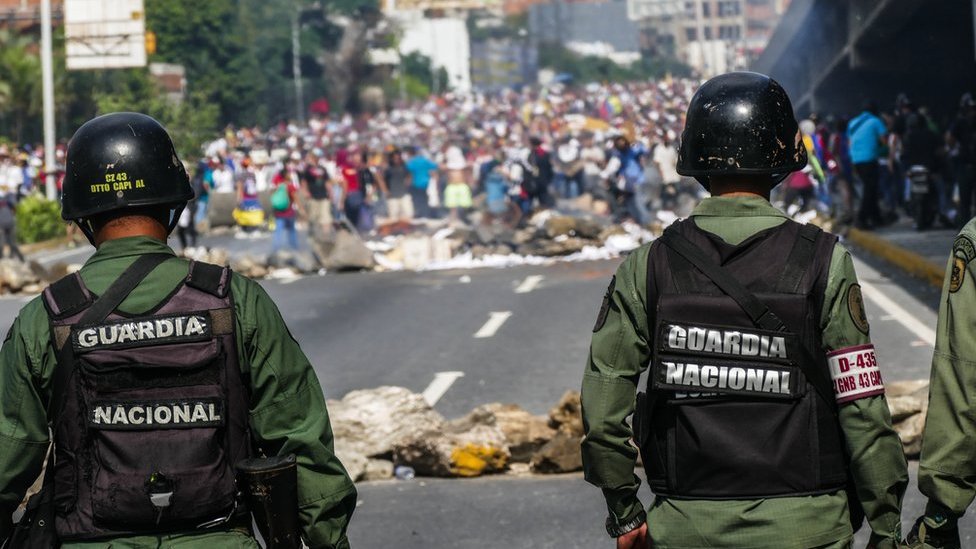
The country is unable to pay for imports of goods and shortages of food and medicine become chronic. Maduro blames the crisis on a US-led "economic war" while the opposition accuses the government of economic mismanagement. Security forces crack down on protesters, resulting in more than 100 deaths. As the crisis grows, millions of Venezuelans leave the country.
Maduro re-elected amid opposition boycott
Political stand-off deepens crisis
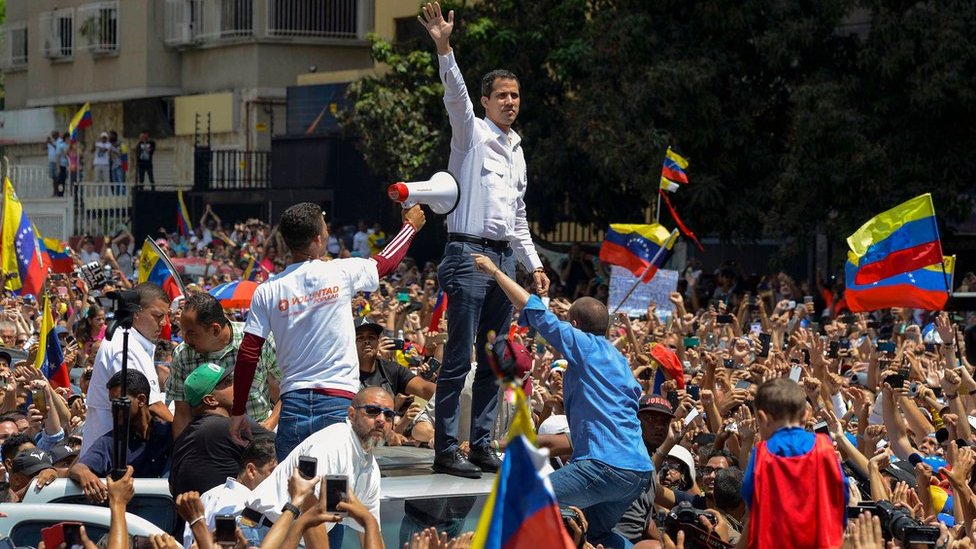
Declaring Maduro's re-election was illegitimate, head of the National Assembly Juan Guaidó declares himself interim leader and is recognised by more than 50 countries, including the US and most in Latin America. Backed by key allies Russia and China and the top of the Venezuelan army, Maduro resists the pressure and stays in power.